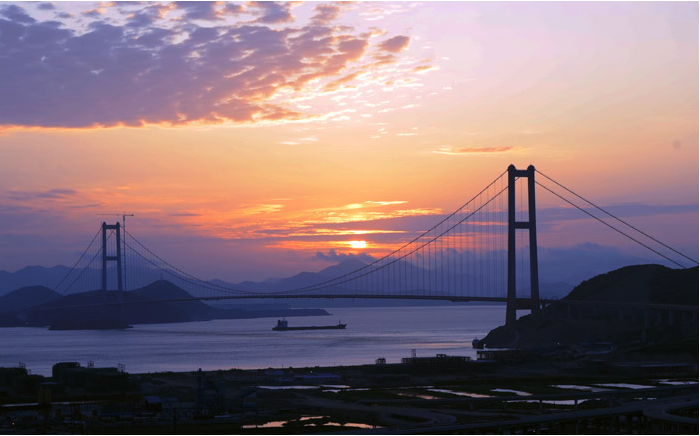
Science and technology.
科技。
Geoengineering.
地理工程学。
Implicit promises.
包含着承诺。
A geoengineering experiment has come unstuck. But there will be more.
地理工程试验取得突破。可期待更多。
FOR the past few years, a European collaboration called IMPLICC (Implications and Risks of Novel Options to Limit Climate Change) has been looking at what it might mean to engineer the climate, by reducing the amount of sunshine that reaches the Earth's surface. A lot of IMPLICC's work, like much else in climate science, has taken the form of computer modelling. In its case the models try to mimic the effects of things like putting veils of reflective particles into the stratosphere, or brightening the clouds over the oceans.
近几年在欧洲合作平台上,简称IMPLICC(控制气候变化--新颖选项的含义及风险)的组织,持续对减少阳光直射地球为目的研究做探讨。探讨是为了解该项气候工程的含义。IMPLICC和其他气候科学研究相似,较多采用电脑模拟程序。在这里,创造出的气候模型设法模拟出两种情况,其一是将层层的反光微粒放入平流层中,其二是增加海洋上空云朵对光线的反射度。
This week the IMPLICC team and other interested parties met in Mainz, Germany, to discuss the results-for the various models have turned out to agree far better than many of their creators expected. In particular, they suggest that particles in the stratosphere can indeed stop rising levels of greenhouse gases raising the overall global temperature, though in doing so they slightly cool the tropics while the poles warm a bit. Other things being equal, the models also agree that geoengineering tends to suppress the hydrologic cycle, with less evaporation and less rainfall.
IMPLICC团队与其他相关组织,这个星期在德国--迈因茨举行讨论。多个模型结果的相符程度还比模型创造人所预计的更相似, 加强了预测结果的可信度。尽管温室气体在持续的增加中,研究显示反光微粒能防止温室气体,造成全球气温的升高。 与此同时,预计到热带地区气温会微降, 南北极的气温则会微升。 所有其他因素不变,各模型一致显示"水文循环"会遭压制,代表将有较少的蒸发及降雨量。
Some researchers, however, want to go beyond modelling. They wish to experiment in the real world. The highest-profile of these schemes has been part of a programme called SPICE (Stratospheric Particle Injection for Climate Engineering), which is paid for mainly by Britain's Engineering and Physical Sciences Research Council (EPSRC). Much of SPICE takes place in computers and laboratories, but one part was to be an actual experiment-a tethered balloon with a kilometre-long hosepipe attached to it. The idea was to pump a small amount of water up to the balloon and thence out into the air, so as to assess the possibility of spraying out other substances at far greater heights.
然而,有些科研人员则选择进行真正的实验。最受瞩目的是简称SPICE(平流层中注入反光微粒气候工程)的组织。SPICE主要是由EPSRC(英国工程与物理科学研究理事会)助资,大部分研究仍在使用电脑程序及实验室研究,一部分研究则在使用真实实验。 实验采用一公里长的输送管拴住气球。气球升空后,实验性地通过输送管在空气中喷洒水,为估计在更高气层中喷洒其他物质的可能性。
This move to a practical project has proved controversial. Some people worry that tinkering deliberately with the atmosphere may cause more harm than good. Others fear that if geoengineering is shown to work it will, by offering a palliative for the problem of global warming, let politicians put off difficult decisions that might lead to a permanent solution. As Clive Hamilton, a philosopher critical of much of the thinking behind geoengineering research, pointed out to the meeting, though the environmental effects of such experiments may be nugatory, their effects on the way people think could be more profound, and much less easily contained.
转向这类真实实验模式是有它的争议点。有人担心,以粗浅的方法任意操纵大气层,弊会大于利。此外,地理工程即使奏效,功效也不会持久。则学家--克利韦?汉密尔顿在会议中对地理工程研究背后的理念提出批评,指政治家可能借暂缓措施,推迟制定有难度的持久性对策。认为地理工程或对环境影响微不足道,但对人们的思考模式却有更深层及无法控制的影响。
Cloud cover
云盖
In light of such thinking, in September 2011, a "stakeholder committee" consisting of a geographer, a sociologist, an atmospheric scientist, an engineer and an adviser to Friends of the Earth (an environmental lobby group) who had been appointed by the EPSRC told the SPICE merchants they needed to be more convincing about how the experiment would be explained, how it would fit into ideas about the future, and how its safety and wisdom could be vouched for publicly.
这类思考方向的浮现,促使"利益相关者委员会"于9月2011年成立。EPSRC任命,由地理学家,社会学家,大气层科学家,工程师及"地球的朋友"(环境行动组--该组织顾问)各一位所组成。委员会要求SPICE商家,对实验目的,未来环境展望的合适性,如何对公众提供研究操作上的安全及知识担保,向这几个方面做出更有说服力的解释及支持。
A further complication was a patent application covering some relevant technology by Peter Davidson, a consultant engineer whom the EPSRC had asked to play a role in choosing what geoengineering work it should pay for. Though this application had been filed before SPICE was proposed, and Mr Davidson both declared his interest and recused himself from discussions on SPICE team when advising EPSRC, Matt Watson of Bristol university, SPICE's principle investigator, was sufficiently concerned about both the application and wider issues of the sort considered by the stakeholder committee that, this week, he cancelled the balloon experiment.
实验的执行更因工程顾问--彼得?戴维森对相关技术做出专利权申请,而有所复杂化。戴维森同时受EPSRC委托,负责挑选可获资助的地理工程项目。戴维森先生在SPICE组成之前以提交专利申请,也呈报有关利益冲突并对EPSRC提供专业指导时,刻意回避针对SPICE团队的讨论。尽管如此,身为SPICE主要调查员的布里斯托尔大学人员-- 马特·沃森,对专利权申请及受"趣益相关者委员会"关注的广泛问题持有所顾忌,以取消这星期的"气球实验"。
The meeting in Mainz also learned, though, of another experiment that has met with better fortune. Last September a team led by researchers from the Scripps Institution of Oceanography, in La Jolla, California, looked at whether clouds could be whitened artificially (and thus caused to reflect more sunlight back into space) using particles emitted from a boat. Such brightening has been observed in the exhaust plumes of cargo ships for some time, but Lynn Russell, who ran the experiment, was still surprised by how much brightening the team saw. Though Dr Russell's experiment had been designed mainly to look at how clouds form naturally, it paves the way for future work on geoengineering. How that will affect attitudes to global warming remains to be seen.
迈因茨会议仍从另个实验有所获得。实验团队来至加利福尼亚—拉奥拉,斯克里普斯海洋学公共机构,探讨的是,利用船只排出的微粒体将云朵"人工白化"的可行性。云朵若经白化,就能把更多阳光反射回太空。尽管货船排放出的废气羽状物以被观察出能使云朵变白,实验人员--琳?拉塞尔仍对实验成果,云朵的白化程度感到惊讶。拉塞尔的实验是为观察云朵的自然形成而设计,在此也为更多地理工程研究铺路。该实验会如何影响对全球变暖的态度,却仍无法预计。












